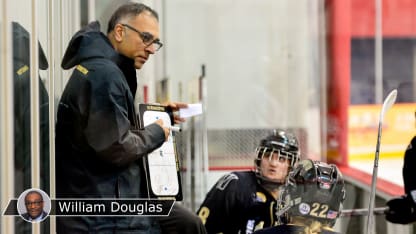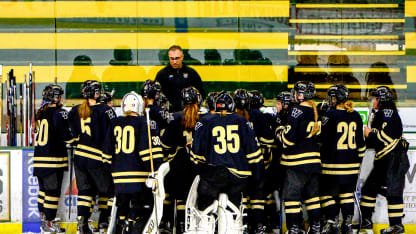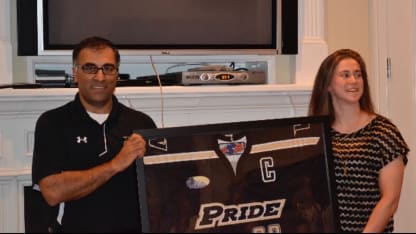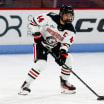Sidhu's impact and influence extends beyond Washington's Beltway. In 2007, he co-founded the Junior Women's Hockey League, which has Under-19 and Under-16 teams in the northeastern United States and Canada.
In 1993, he created the RinkSport College Development Program, which brings some of the NCAA's top women's hockey coaches together with prospective student-athletes from across North America in the summer for a week of training, education and competition.
Sidhu's hockey journey began after his family moved from India to New York in order for his father, Dr. Rajindar Sidhu, to do a residency at the New York Medical College.
The younger Sidhu was born in New York in 1966 and moved with his family to Montreal when he was 4 months old so his father could receive neurosurgical training at McGill University.
"Although I was born in the U.S., I kind of felt like Montreal was where I grew up and, obviously, that's where I began playing hockey," Sidhu said. "We were the only non-white, non-French kids in our little village there that were playing hockey, but we felt very much welcomed to it."
Sidhu's family was on the move again in the 1970s, this time to the Washington, D.C., area where his father began a private medical practice. Sidhu, a goalie, and his brother continued playing hockey, joining a suburban Maryland team.
"As fate would have it, a lot of people were moving into the area from other parts of the country and the world," he said. "We joined a club that had kids from Massachusetts, Missouri, and Michigan and Canada. We were right at home. Really good hockey, really good players."
Sidhu went on to play junior varsity level hockey at Northeastern University and served as an assistant on the women's hockey team at the same time he was earning his doctorate in neuroscience.
When was completing his studies, then-Northeastern women's coach Don MacLeod asked Sidhu if he would coach the team's goalies.
"I'd never been a goalie coach," he said. "Fortunately, their team was really good. They had just come off a national championship. The goalies were amazing, and they were really helpful. They knew I was green, but they were willing to give me a chance."
MacLeod gave Sidhu another opportunity when he invited him to coach the U.S. women's national team's goalies at the first IIHF Women's World Championship in 1990 in Ottawa.
"I was only 23 years old, and the players were almost as old as I was, some older," he said. "We went all the way to the gold medal game, lost to Canada in front of 10,000 people. It was such a rich experience."
He has been a USA Hockey fixture ever since. He served as a training camp coach for the 1992 and 1994 national teams; an instructor in the organization's coaching education program; coach-in-chief for the Southeast District; coach of USA Hockey's 15 Player Development Camps in 2013, 2016 and 2018 and coach at the Girls Under-18 Select Camps in 2014 and 2015; and as a mentor in the Coaching Intern Program.
"He's been integral in some of the key programming that we've implemented at national camps and in the Southeast District," said Kristen Wright, USA Hockey's American Development Model manager for female hockey. "One the most impactful things that Kush is capable of, really, is that he has an unbelievable skillset in making sure people feel welcome in creating a community of hockey around him."
The man who once didn't see his future coaching girls and women's hockey now can't imagine doing anything else.
"I feel like there's a purpose to what we do," he said. "We want kids to feel that this is the best part of their day when they come to hockey, because it's mine."
Photos: Eric Blitz, Haley Skarupa



















